Letter recognition Phonics Worksheets for Ages 6-8
9 filtered results
-
From - To
Boost your child's reading journey with our Letter Recognition Phonics Worksheets for Ages 6-8! Designed to engage young learners, these printable worksheets focus on strengthening foundational skills in alphabet recognition and phonics. Through a variety of interactive activities, children will improve their understanding of letter sounds, identify uppercase and lowercase letters, and build phonemic awareness. Ideal for classroom use or at-home practice, our worksheets are an essential resource for developing confident readers. Unlock the power of literacy and watch your child excel in their reading and writing skills with our expertly crafted educational materials.
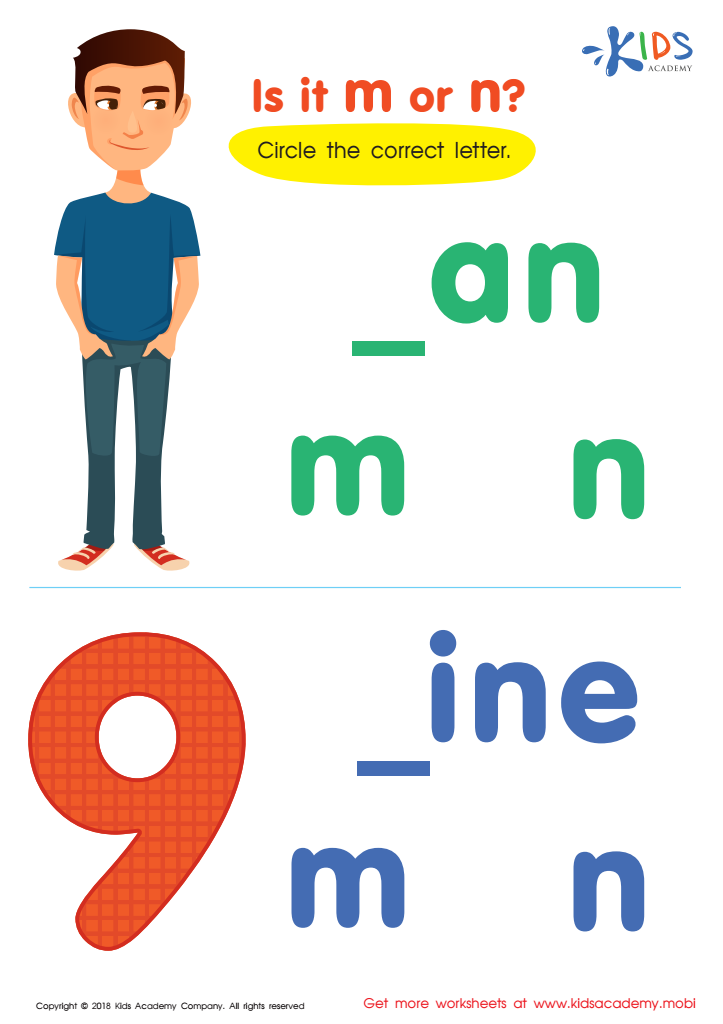

Is It m or n? Worksheet
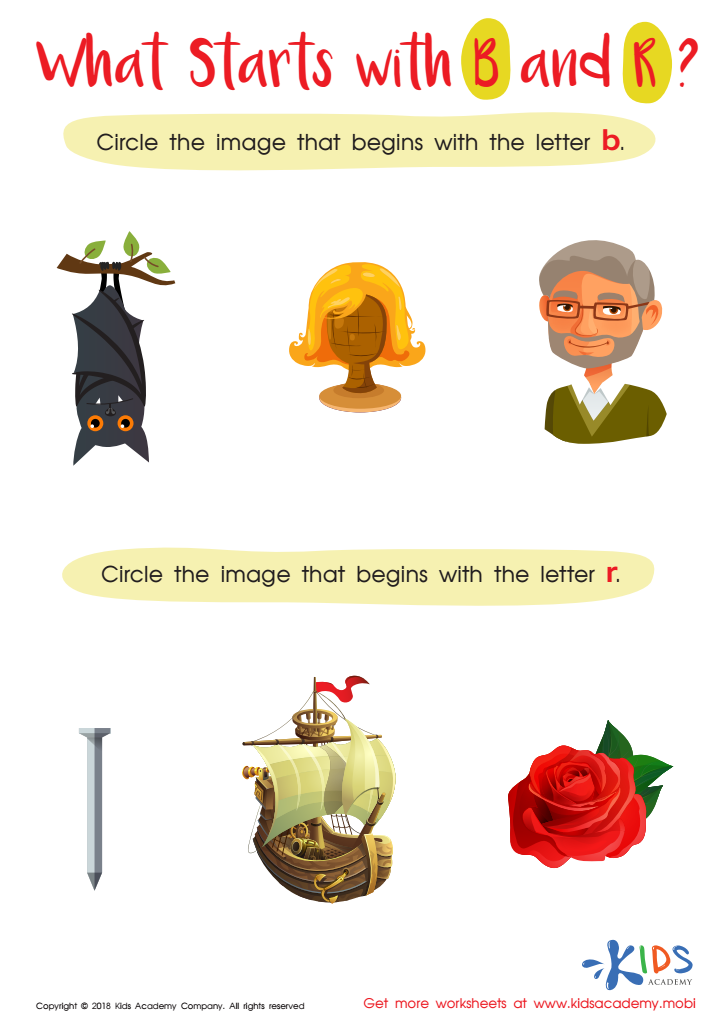

What Starts with B and R? Worksheet
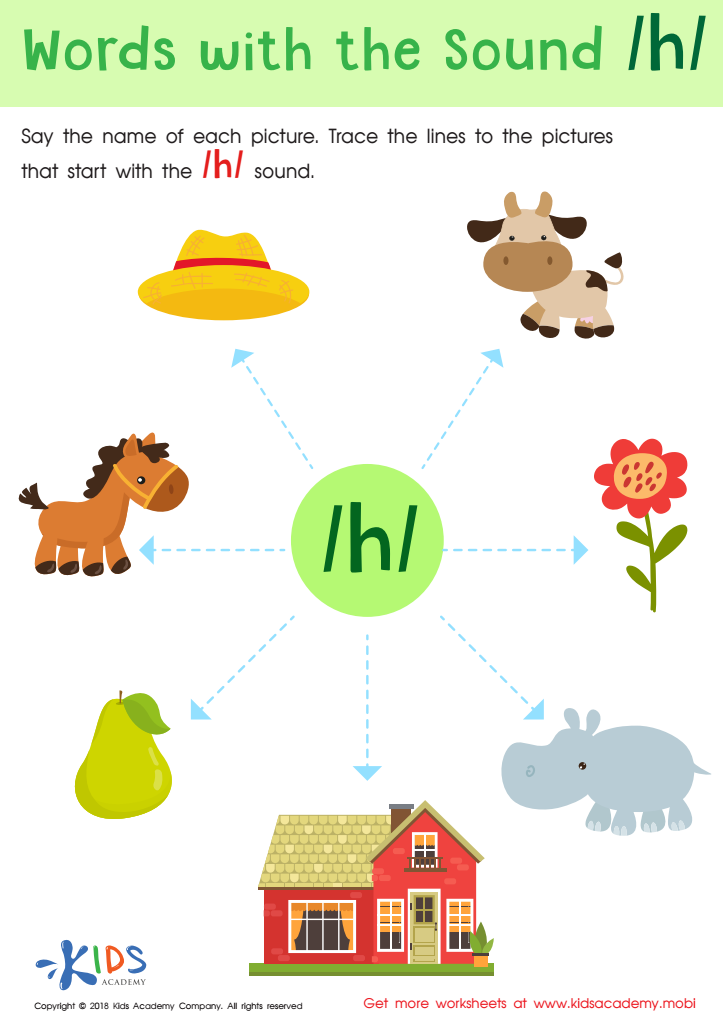

Words with sound h Reading Worksheet
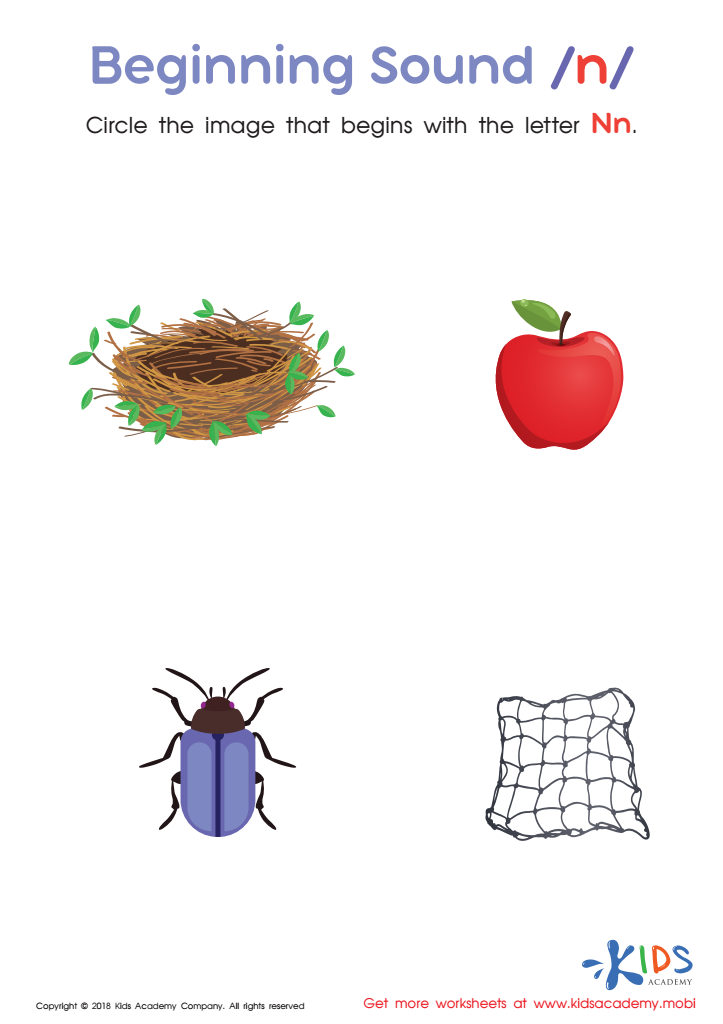

Beginning Sound «n» Worksheet
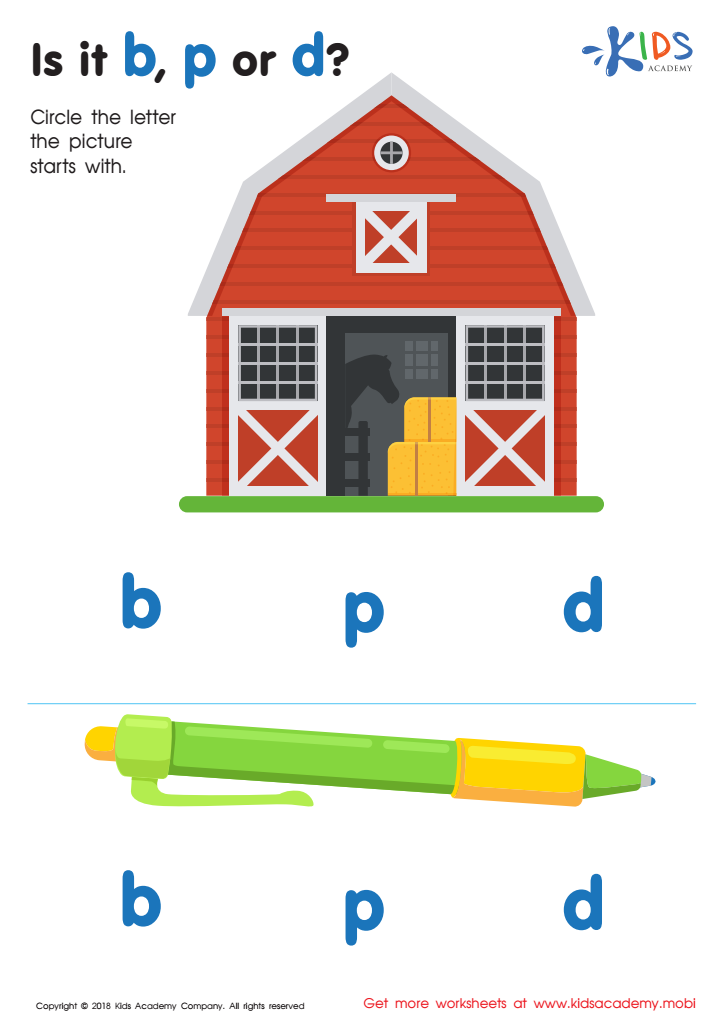

Is it b, p or d? Worksheet


Long and Short U Worksheet
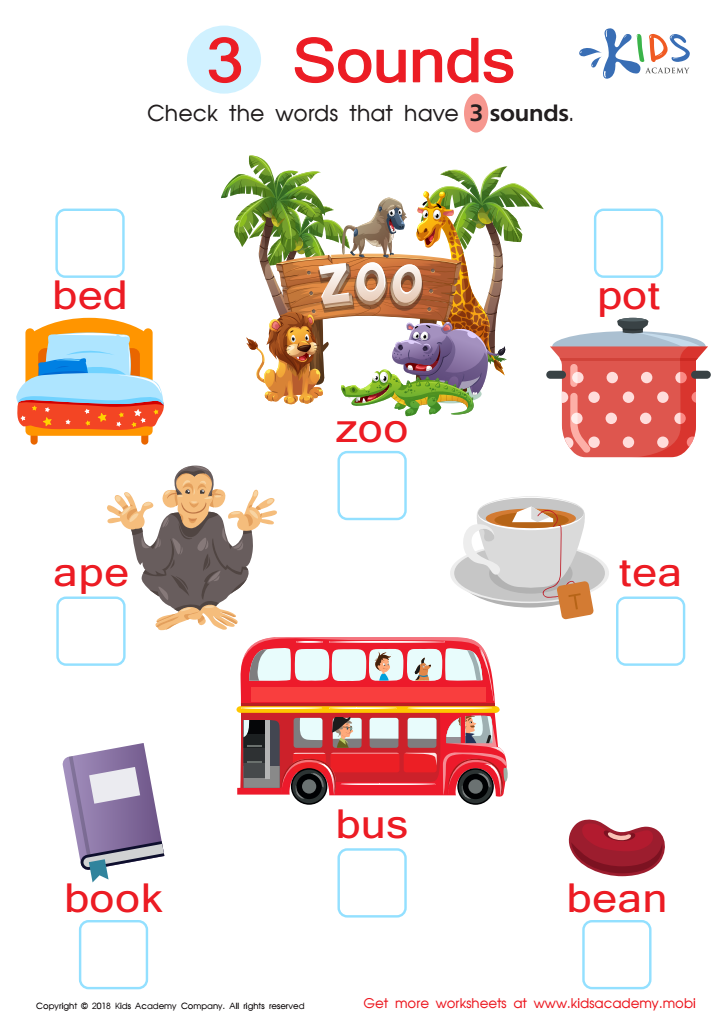

3 Sounds Worksheet
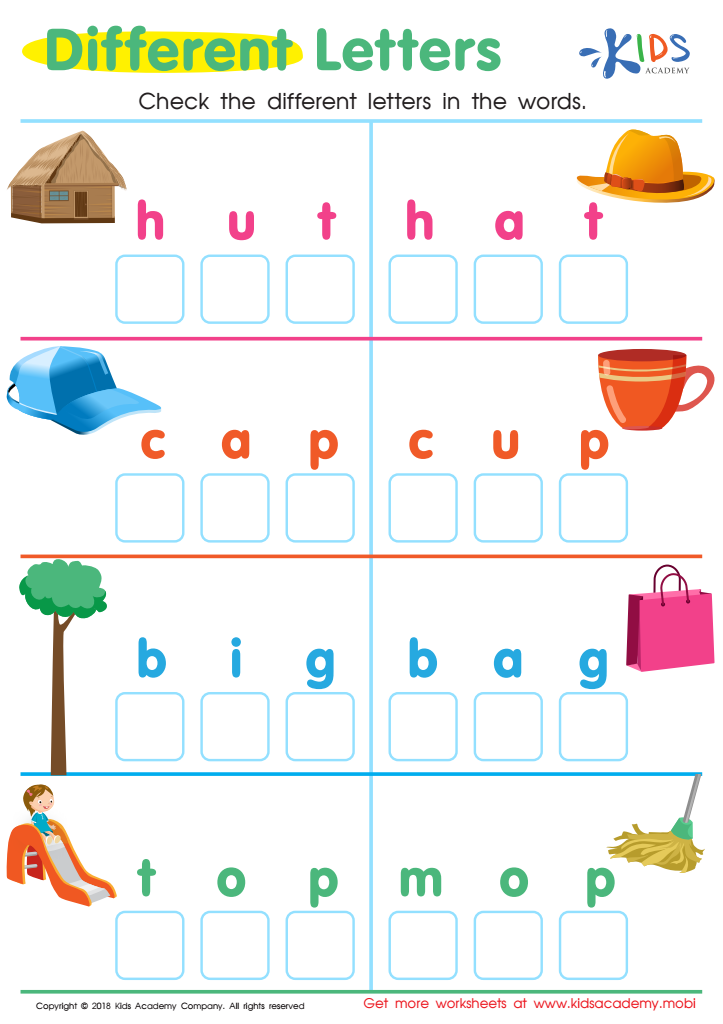

Different Letters Reading Worksheet


Long and Short E Worksheet
Letter recognition and phonics form the cornerstone of early literacy, essential for children aged 6-8. During these formative years, young learners transition from recognition of basic sounds and letters to more complex aspects of reading and writing. Strong letter recognition skills allow children to quickly identify letters in various contexts, forming the basis for word recognition. This early fluency is crucial for reading comprehension and academic success.
Phonics takes letter recognition a step further by teaching children how letters correspond to sounds, enabling them to decode unfamiliar words and enhancing their spelling abilities. Children equipped with phonics skills can better understand the relationships between sounds and letter patterns, fostering a smoother pathway to literacy.
Investing time in these skills boosts children's confidence and enriches their language skills, allowing them to tackle more advanced literacy tasks with ease. Moreover, literacy impacts overall academic performance since it is fundamental to understand instructions, grasp new concepts, and engage fully with educational materials across subjects. When parents and teachers emphasize letter recognition and phonics, they are not just teaching children to read; they are setting the stage for lifelong learning and critical thinking skills. Hence, prioritizing these foundational skills equips children with the tools they need for educational and personal success.

 Assign to My Students
Assign to My Students




















